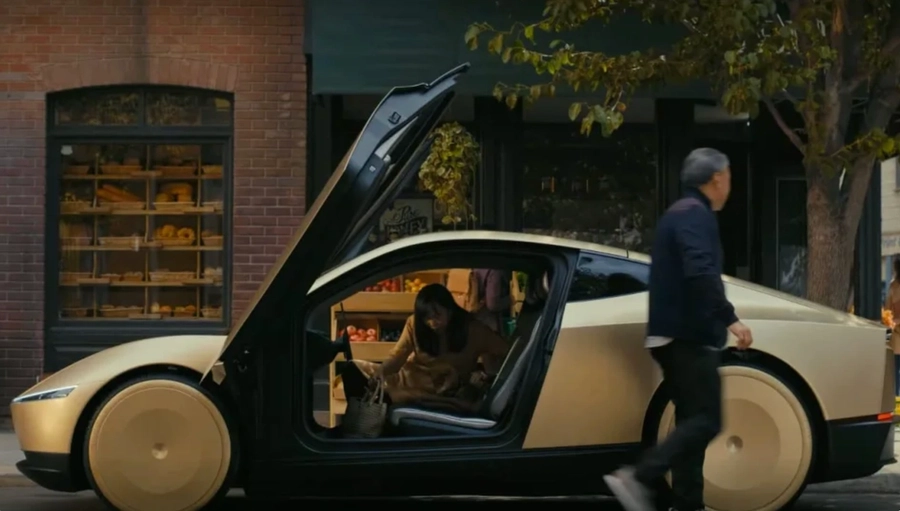Friday, October 11, 2024

(Tesla)
The event, which showcased Tesla’s vision for fully autonomous vehicles, lacked crucial details on production timelines and regulatory progress, sparking concerns about the feasibility of the project.
Tesla’s shares dropped by 6% in premarket trading after the company's "We, Robot" event on October 10, 2024, where it revealed its highly anticipated Cybercab robotaxi. The Cybercab, a futuristic autonomous vehicle with no steering wheel or pedals, left investors and analysts disappointed due to a lack of specific details and clear timelines for production and deployment.
During the event, Tesla CEO Elon Musk showcased the Cybercab, which seats two passengers and is expected to cost less than $30,000. Musk indicated that the Cybercab could enter production by 2026 or 2027, pending regulatory approval.
The vehicle relies on Tesla’s proprietary AI and camera-based full self-driving technology, bypassing the widely used lidar sensors seen in competitors’ robotaxis.
In addition to the Cybercab, Tesla also introduced the Robovan, a larger autonomous vehicle designed to carry up to 20 passengers or cargo. However, as with the Cybercab, no clear production timelines or regulatory pathways were provided for the Robovan.
Tesla also highlighted progress on the Optimus humanoid robot, which Musk described as a future household companion capable of performing daily tasks. However, this aspect of the event was more speculative and focused on long-term ambitions rather than immediate product releases.
Investor sentiment took a hit, with many expressing disappointment over the absence of updates on nearer-term projects like Tesla's planned low-cost electric vehicle or significant advancements in full self-driving capabilities.
Analysts had hoped for more concrete timelines and verifiable progress on autonomous driving, but the presentation remained focused on the broader vision without tangible updates.
According to UBS, the event “may disappoint elevated expectations” as investors learned little new information, especially on key aspects such as full self-driving progress(Investing.com).
RBC Capital Markets also pointed out that the event felt more like a marketing effort than a substantial update on Tesla’s autonomous strategy, contributing to the stock’s decline (Techopedia)(Investing.com).
Barclays analysts noted that Tesla did not reveal the low-cost model planned for early 2025, which many investors had anticipated. Moreover, there were no new data or milestones shared regarding Tesla’s full self-driving technology, which remains a major hurdle in the commercial viability of the robotaxi project (Investing.com).
Several analysts also questioned the feasibility of Musk's ambitious robotaxi timeline. While Musk claimed that the Cybercab would be operational in key markets like California and Texas by 2027, the regulatory landscape for fully autonomous vehicles remains complex.
Furthermore, Tesla’s reliance on a vision-only approach, as opposed to sensor-fusion methods (combining cameras, radar, and lidar), adds an extra layer of uncertainty.
Jefferies highlighted this concern, noting that no company has yet succeeded in achieving higher levels of autonomy using vision-only systems(Investing.com).
Despite the lukewarm reception, some investors remain cautiously optimistic about Tesla’s long-term prospects. Wedbush analysts believe that the Cybercab has the potential to become a major growth driver for Tesla, particularly in the robotaxi market, which could boost profitability in the coming years(Investing.com).
However, Tesla’s track record of delayed timelines and overly optimistic projections tempers that enthusiasm.
The Cybercab robotaxi reveal has left investors grappling with uncertainty. While the vehicle showcases Tesla’s ambitious vision for the future of autonomous transportation, the lack of concrete updates on full self-driving technology, regulatory hurdles, and a clear production timeline has spurred skepticism.
Tesla’s stock drop reflects broader concerns about the company’s ability to maintain its technological lead in an increasingly competitive space.
Michael Kelly is the founder of Candlestick Media and The Milwaukee Post. He's a software developer by trade who took a liking to entrepreneurship after graduating college. He founded The Milwaukee Post in September of 2024.
Subscribe to
The Milwaukee Post
$8.30/month
Get access